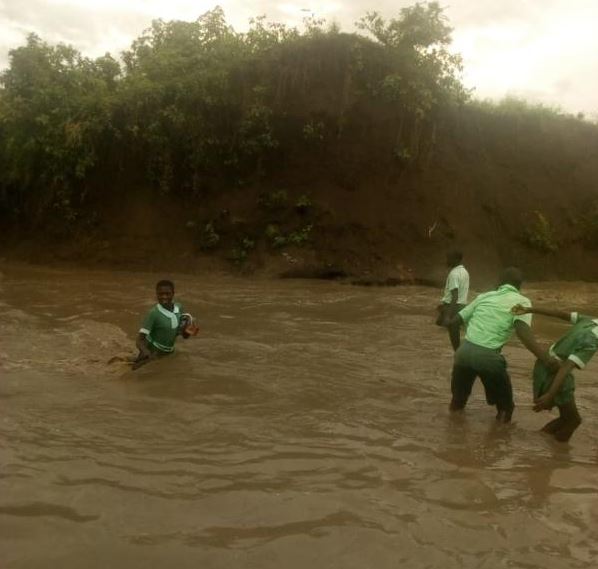×
The Standard e-Paper
Kenya’s Boldest Voice

It is 12:40pm and a group of school children stand at the banks of River Makindu waiting fearfully for the swollen waters to go down before wading through for a return trip back home.
They remove some of their clothes and stuff them into their bags before holding hands. Older ones lead younger ones across the river.